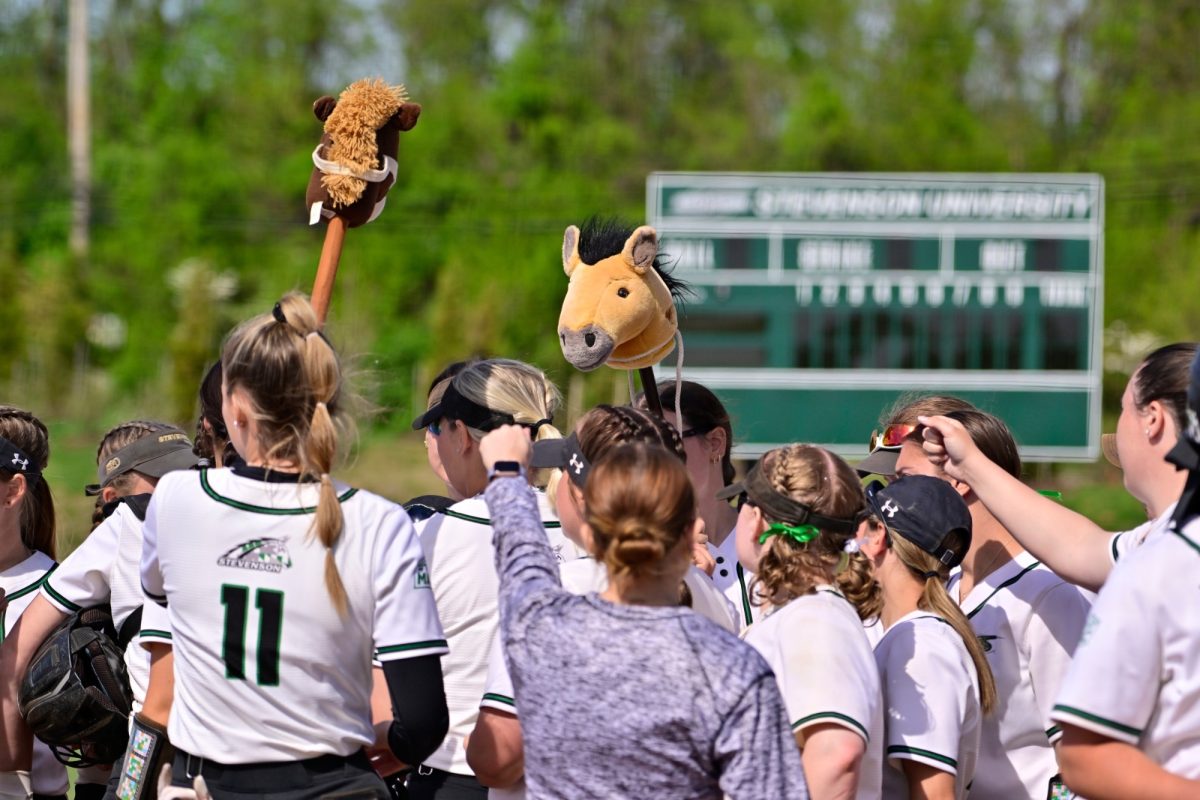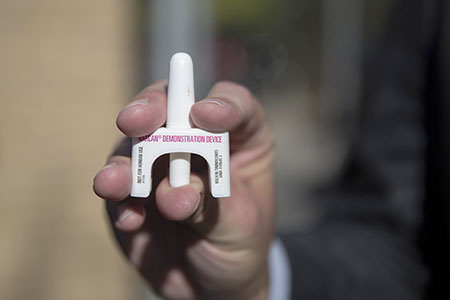According to the National Institute on Drug Abuse, every day more than 115 people in the United States die from opioid overdoses. As the crisis sweeps across the nation, students and staff at Stevenson are learning how to address it as they become certified in Narcan administration. According to the Narcan website, “Narcan (Naloxone HCl) Nasal Spray is the first and only FDA-approved nasal form of Naloxone for the emergency treatment of a known or suspected opioid overdose.”
Stevenson University’s Office of Security is taking measures against the national opioid epidemic by training the security staff to administer Narcan. There are no known cases of any opioid-related incident on campus, but due to the high number of fatalities nationwide, the Stevenson security team wants to be prepared for any situation.
Louis Wingo, a trained EMT and Stevenson security member, explained, “If you misdiagnose an incident and give Narcan, it will not hurt the person. The Narcan will only begin to reverse the effect of the narcotic, such as any opioid pain medication or heroin and Fentanyl.”

(Photo courtesy of Cynthia Marquez)
Though administering the drug is not complex, knowing the signs of an overdose is necessary. Senior nursing major Allyssa Pingul described the signs of an opiate overdose: “a loud snoring or gurgling noise which they call the ‘death rattle.’ The patient will either be unresponsive or unconscious with pale, gray, clamy skin, and blue lips and fingers. Their pulse can be slow and erratic. Their breath will either be slow and shallow, or there will be no signs of breath at all.”
Pingul explained that during her nurse externship in the emergency department at Memorial Hospital she has seen adults ages 20 to 25 overdosing. Though narcotic overdosage at Stevenson seems improbable, the security staff advised the campus community to always keep in mind that abusing prescription drugs, or purchasing drugs from an unknown place, can lead to serious harm.
Greg Cullison, director of security, reminds students that if a friend is abusing opiates, to use their resources and reach out to someone who can help the friend. He added, “As always, Stevenson Security is available 24/7/365, along with other resources such as the Office of Residence Life and the Wellness Center.”
Stevenson University also has a Good Samaritan Policy in place for students’ safety. In the event of a crisis incident, students should not be afraid to call for help. According to the Good Samaritan Policy, “Students who seek medical attention for themselves or their fellow students related to consumption of alcohol or other drugs will not be charged with a violation of Stevenson University policies and/or the Guidelines for Student Housing.”
Those who believe they must call 911 to assist in a situation should always call campus security “immediately thereafter so they can respond and assist,” said Cullison, who added, “Security always needs to know when 911 is called and for what reason.”
To get more information about being trained in Narcan administration, local or county health centers may offer a training class. In addition, Narcan may be aqcuired from any major pharmacy chain (with a prescription request aid form). For any further questions or concerns, reach out to the Wellness Center or a campus security officer.


























































